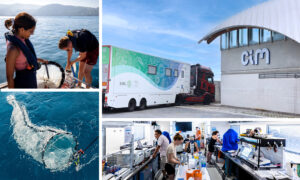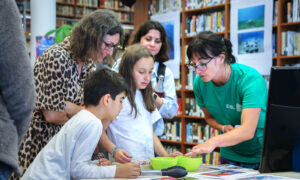
Resourceful alumni
Seeds of collaboration and initiative take root in two alumni, each developing community-led tools to support life science research.
LabLore
Like many researchers, Aurelio Teleman has all too frequently felt the frustration of building experiments and hypotheses on published data and conclusions that were not solid. Together with Thomas Horn, his solution has been to build LabLore in his spare time – a knowledge database to accompany published life science literature. “The driving force was to try to find a way for scientific work to be evaluated based not on citations, but on content,” he says. Users rate papers according to reproducibility and data quality, strength and soundness of conclusions, novelty, and impact. “It’s forward looking, providing a resource for people who want to design new projects and experiments based on other people’s research,” explains Teleman, “At LabLore you can see what experience people have had with a particular paper.” Like any community-based endeavour, it relies on user participation: “Instead of putting a paper away and forgetting about it after Journal Club, document some of the thoughts and ideas that came out of the discussion on LabLore,” he encourages. Comments can be voted up or down, based on their value, and the same counts for website feedback.
It’s forward looking, providing a resource for people who want to design new projects and experiments based on other people’s research

Aurelio Teleman, originally from Italy, was a staff scientist in the Cohen group, part of the Developmental Biology Unit at EMBL Heidelberg, from 1998 to 2007. For the past seven years he has been group leader at the German Cancer Research Center (DKFZ). His research interests include insulin signalling, tissue growth control and Drosophila.
Life Science Network
Alen Piljic has an ambitious and laudable goal as co-founder of the not-for-profit Life Science Network: “To improve the scientific process, one issue at a time, one feature at a time.” His newly developed online platform combines an expanding list of tools that aim to address challenges including peer review, protocol sharing, recruitment, and communication, through community-led contributions, recommendations and comments. The various modules are built around a comprehensive directory of life science institutes, researchers and enterprises. “Behind the scenes the network is fairly complex and highly structured – triangulating location, people and content – but for the user it aims to be simple and efficient,” Piljic explains. Currently in the beta stage, this free resource is a crowd-based initiative, with openness, transparency and knowledge sharing at its heart. “We built this network for the life science community,” says Piljic. “The platform can be taken in any direction – if certain features aren’t useful, or if users want more of one module and less of another, so it will evolve.”
Behind the scenes the network is fairly complex and highly structured, but for the user it aims to be simple and efficient

Alen Piljic, from Croatia, joined EMBL Heidelberg in 2002 as a PhD student, going on to become a postdoc and then research scientist in the Schultz group, part of the Cell Biology and Biophysics Unit. In 2012 he moved away from the bench to launch Life Science Network gGmbH, together with EMBL alumni Aleksander Benjak and Vibor Laketa.


